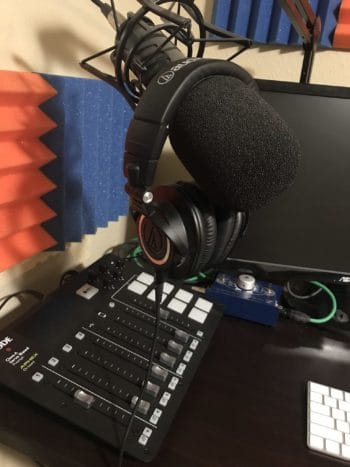Because the best mixer for podcasting will vary depending on your needs, how many people are involved, your experience with audio equipment, and much more, I’ve broken up the recommendations into mixers that work well for single-person and 2-person podcasts, and recommendations for podcasts with 3 or 4 (or more) hosts.
One thing to keep in mind when deciding on an audio mixer is that you will need an XLR input for each person in the room or studio. Even if you’re doing a solo podcast, if you ever want to have a guest join you live, you’ll need a spare input and XLR mic for them. Because of that, I would actually look for a mixer that has more inputs than you think you’ll need.
For example, if you’re doing a 2-host podcast, you should consider mixers from the multi-person podcast section. Some people might only ever have guests through Skype or phone calls, but you never know.
I’m only going to include mixers that include a USB connection so you don’t have to worry about how to connect them to your desktop computer or needing additional equipment to get your recordings onto your podcasting laptop.
USB audio interfaces are also popular ways to record on your computer (or connect to a mixer) but you usually won’t have the same control over EQ, levels, gain, etc.
Read more





